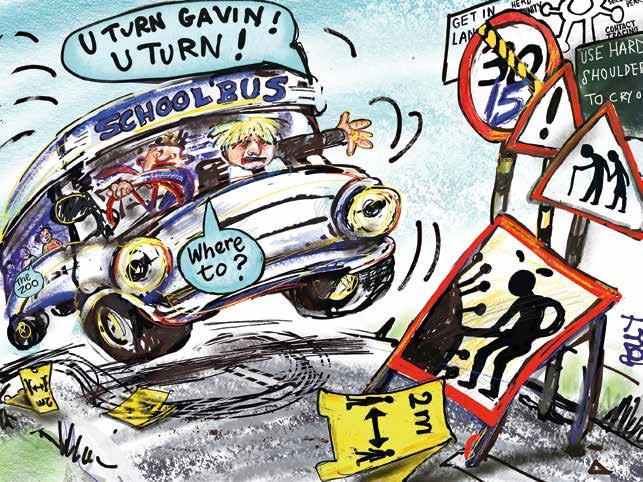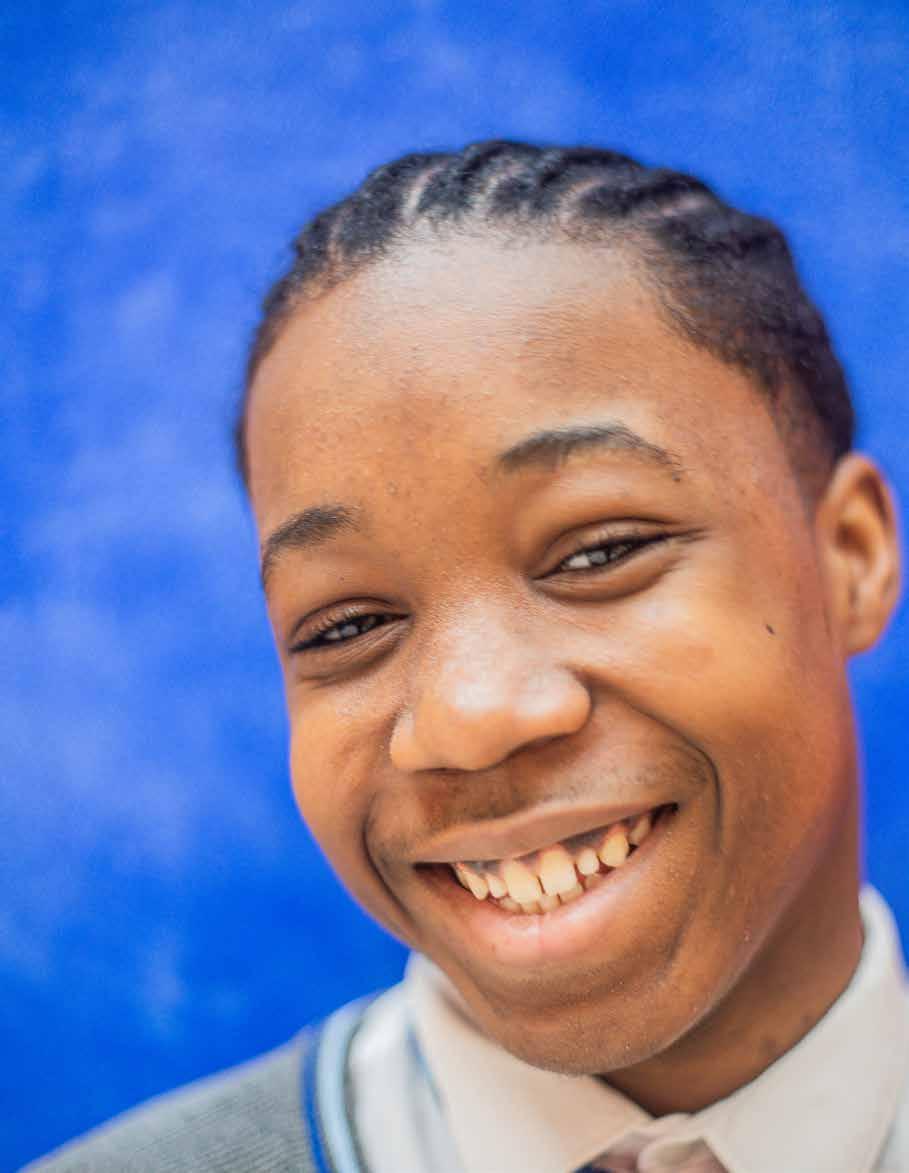
3 minute read
Covid risk in special schools
Staff fear spread of Covid-19 in special schools
NINETY-SIX per cent of staff in special schools say they are unable to maintain social distancing and fear there is a high risk of airborne transmission of Covid-19.
NEU survey of staff in special schools
They worry the disease will spread as a result of pupils spitting, dribbling, coughing and sneezing.
Findings from a survey of 1,223 NEU members – carried out before the wider opening of schools on 1 June – showed many felt unsafe and at higher risk than those in mainstream settings.
Despite the challenges, many in the sector are committed to supporting those pupils at school and those remaining at home.
More pupils attended special schools compared with mainstream schools during lockdown. Intakes were six per cent, later rising to eight per cent, compared with the national average of two per cent.
Some schools had high numbers of up
Fred Jarvis (left), former National Union of Teachers (NUT) general secretary, died aged 95 on 17 June.
At the news of his passing, Kevin Courtney and Mary Bousted, joint NEU general secretaries, paid tribute to their predecessor: “Fred was a trade unionist to his core – from his student days as president of the National Union of Students through to his positions as general secretary of the NUT from 1975-1989 and president of the Trades Union Congress from 1988-9. to 250 pupils – at a time when many staff had been forced to self-isolate, were in a vulnerable category or living with someone at higher risk from Covid-19.
Only 14 per cent of those polled said they believed they had been given adequate PPE. And seven per cent said they had not been given any PPE.
One member said: “Our pupils will either attempt (and manage) to remove PPE or will be absolutely terrified and unable to understand us.”
The NEU published specific guidance for special schools preparing for wider 96% unable to maintain social distancing
84% perceived an increased exposure to Covid-19 96% fear airborne transmission
93% backed the NEU’s five tests
Visit neu.org.uk/advice/coronavirus-special-schools-faqs
Coronavirus crisis
opening. This was originally intended to reflect Department for Education (DfE) guidance, but none had been forthcoming. It was belatedly released on 26 May. Previously only a risk assessment document had been published by the DfE, on 19 April – almost a month after lockdown began.
Teacher and NEU rep Storm Knight works at Castle School in Northumberland, which educates children with complex medical needs. She told Educate: “The union’s checklist for special schools has been really beneficial. We have fought for PPE in our school. We follow NHS procedures for everything, so why do we not have a higher level of PPE for staff?”
NEU joint general secretary Mary Bousted said: “This survey is a startling reminder of the risks teachers, heads and special school staff have been facing in recent months. It is not good enough for the DfE to release guidance so tardily, when the wellbeing of some of the most vulnerable children in society ought to be paramount.”
She added: “The NEU has written to Public Health England, the DfE and the Secretary of State. We will continue to urgently press for
better advice and support for this sector.”
“He remained a campaigner on education throughout his retirement – setting up the New Visions for Education Group.
“His commitment and dedication will continue to be remembered at the NEU annual conference through the Fred and Anne Jarvis award, established in 2007 and presented annually to those who have campaigned tirelessly for children and young people.
“Fred will be remembered for the remarkable contribution he made throughout his life to education and the trade union movement.”










